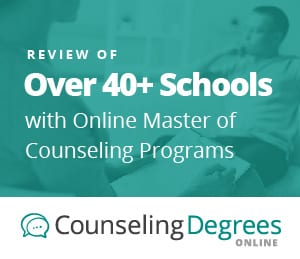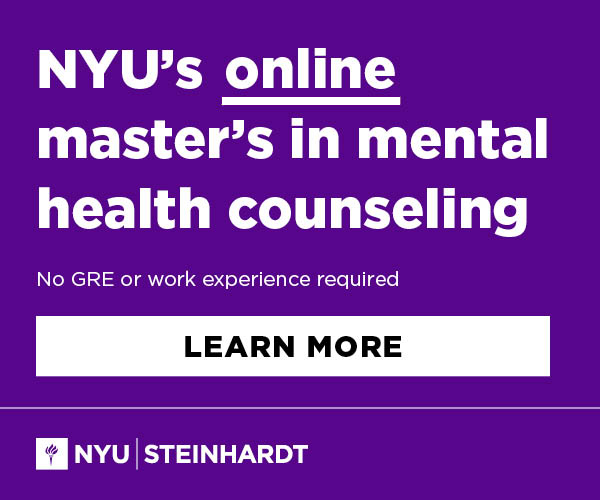 Walden University : MS in School Counseling (CACREP Accredited)
Walden University : MS in School Counseling (CACREP Accredited) Walden University : MS Dual Degree in Clinical Mental Health Counseling and School Counseling (CACREP Accredited, six specializations to choose from)
Walden University : MS Dual Degree in Clinical Mental Health Counseling and School Counseling (CACREP Accredited, six specializations to choose from)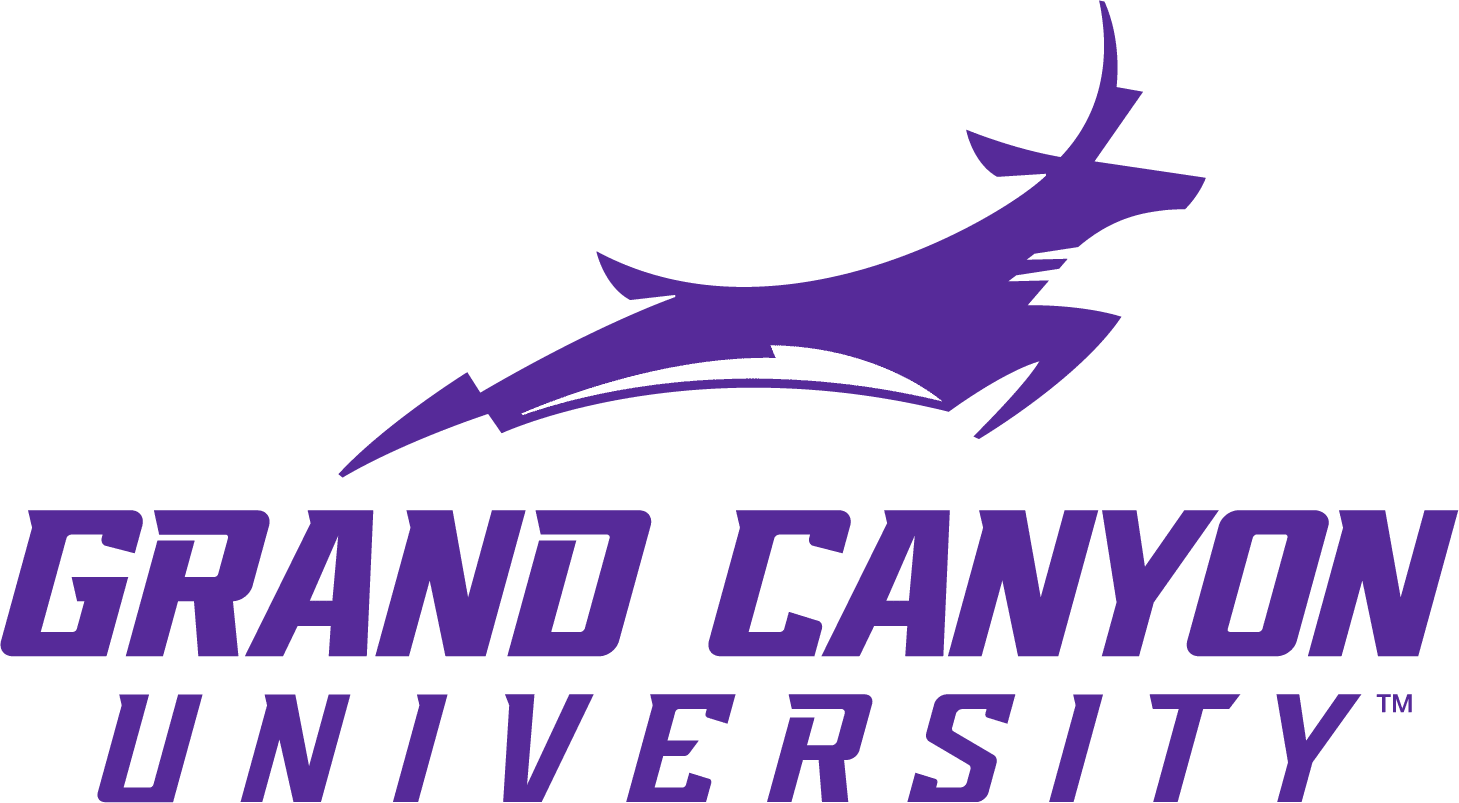 Grand Canyon University : Master of Education in School Counseling (Take the next step toward excellence with a master's degree in Education from GCU.)
Grand Canyon University : Master of Education in School Counseling (Take the next step toward excellence with a master's degree in Education from GCU.) Liberty University : MED: School Counseling (Online with required intensives)
Liberty University : MED: School Counseling (Online with required intensives) University of Denver : Master of Arts in School Counseling (No GRE required)
University of Denver : Master of Arts in School Counseling (No GRE required) Colorado Christian University : School Counseling, M.A. (100% online, or hybrid format. )
Colorado Christian University : School Counseling, M.A. (100% online, or hybrid format. )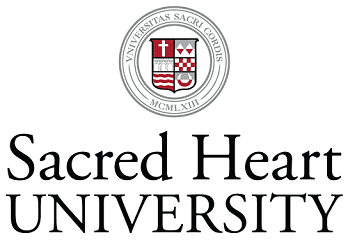 Sacred Heart University : Master of Arts in School Counseling (Online program, NECHE accredited)
Sacred Heart University : Master of Arts in School Counseling (Online program, NECHE accredited) University of West Alabama : M.S. Guidance and Counseling (100% online. Affordable tuition.)
University of West Alabama : M.S. Guidance and Counseling (100% online. Affordable tuition.)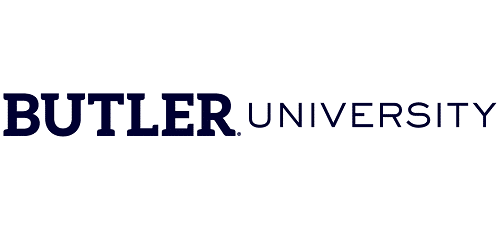 Butler University : Master of Science in School Counseling (CACREP Accredited)
Butler University : Master of Science in School Counseling (CACREP Accredited)Why a Master’s Degree in School Counseling?
A master’s degree in school counseling is the primary educational requirement for those seeking licensure as a school counselor. This advanced degree equips students with the skills and knowledge necessary to support students’ academic achievement, social development, and mental well-being.
For those looking to expand their expertise or pursue leadership roles in education or mental health, advancing to a doctorate level program can provide opportunities for specialized practice, research, or administrative positions.
Key Benefits of a Master’s in School Counseling
- Licensure Preparation – Most states require a master’s in school counseling from an accredited program to qualify for licensure. Completing this degree ensures you meet the educational criteria for certification.
- Skill Development – The curriculum emphasizes essential skills in counseling theory, crisis intervention, and student advocacy. Graduates learn to assess student needs, develop intervention strategies, and provide effective support services.
- Diverse Career Opportunities – While many graduates become K-12 school counselors, the skills gained in an MSW program can also translate to roles in mental health clinics, nonprofit organizations, or community service agencies.
- Positive Job Outlook – The U.S. Bureau of Labor Statistics projects steady growth for school counseling positions, driven by increasing demand for mental health support and academic guidance in educational settings.
For those passionate about guiding students through academic and personal challenges, earning a master’s in school counseling can provide a rewarding career path with opportunities to make a lasting impact.
Types of Master’s in School Counseling Degrees
Master’s in school counseling programs come in several degree types, each offering distinct approaches to preparing students for careers in school counseling. While all degree types meet licensure requirements when accredited, the focus, coursework, and skill development may vary.
Master of Arts (MA) in School Counseling
An MA in school counseling emphasizes counseling theory, emotional development, and interpersonal skills. This degree often focuses on the social and emotional aspects of counseling, preparing graduates to provide one-on-one support, group counseling, and crisis intervention.
Ideal for: Students interested in direct client work and relationship-building skills.
Master of Science (MS) in School Counseling
An MS in school counseling typically emphasizes research methods, data analysis, and evidence-based interventions. Programs often include coursework in psychological assessment, program evaluation, and data-driven counseling strategies.
Ideal for: Students interested in blending counseling practice with research or those seeking roles that involve program development or data-based interventions.
Master of Education (MEd) in School Counseling
An MEd in school counseling is often designed for individuals with a background in education who are transitioning into counseling roles. MEd programs may emphasize classroom management, educational theory, and student development in addition to traditional counseling coursework.
Ideal for: Educators pursuing a career change or those planning to work closely with teachers and school staff.
Choosing the Right Degree
While MA, MS, and MEd degrees vary in focus, all accredited school counseling programs are designed to meet state licensure requirements. Prospective students should evaluate programs based on their career goals, preferred learning style, and interest in research or educational leadership.
Master’s in School Counseling Prerequisites
Before enrolling in a master's in school counseling program, applicants must meet certain academic and experience-based requirements. While prerequisites vary by institution, there are common criteria that most programs expect applicants to fulfill.
Bachelor’s Degree Requirements
Applicants must hold a bachelor's degree from an accredited institution. While some programs accept degrees in any field, many prefer candidates with a background in psychology, education, social work, or related disciplines.
For students seeking a more targeted undergraduate experience, pursuing a bachelor's in counseling degree can provide a strong foundation in counseling principles, human behavior, and mental health concepts — all of which align well with MSW program requirements.
Common Prerequisite Coursework
In addition to holding a bachelor’s degree, many programs require students to have completed specific undergraduate coursework. Common prerequisites may include:
- Introduction to Psychology
- Human Development or Lifespan Development
- Statistics or Research Methods
- Abnormal Psychology
- Education Foundations (for MEd programs)
Additional Requirements
In some cases, schools may also require:
- GRE Scores – While some programs still require GRE scores, many are adopting GRE waiver policies for applicants with strong GPAs or relevant professional experience.
- Letters of Recommendation – Typically two to three letters from professors, employers, or supervisors familiar with the applicant’s academic and professional background.
- Personal Statement – Outlining career goals, motivation for pursuing school counseling, and relevant experiences.
- Resume or CV – Highlighting any volunteer or professional experience in educational or counseling settings.
Meeting these prerequisites ensures that students enter their MSW program prepared for the advanced coursework and practical training required for licensure and career success.
Accreditation for Master’s in School Counseling Programs
Accreditation is crucial when selecting a master’s in school counseling program. Accredited programs meet established academic standards, ensuring students receive a quality education that prepares them for licensure and professional practice.
Why Accreditation Matters
Accreditation is essential for several reasons:
- Licensure Eligibility – Most states require applicants to graduate from an accredited program to qualify for school counselor licensure.
- Employment Opportunities – Many employers prefer or require candidates who have completed accredited programs.
- Credit Transfer – Credits from accredited programs are more likely to be accepted if you pursue further education.
Key Accrediting Bodies
Master’s in school counseling programs may hold accreditation from one or more of the following organizations:
- Council for Accreditation of Counseling and Related Educational Programs (CACREP) – Widely recognized as the gold standard for school counseling programs. CACREP accreditation ensures programs meet national standards for curriculum, faculty qualifications, and student outcomes.
- Council on Rehabilitation Education (CORE) – Though CORE now operates under CACREP, some programs may still reference CORE accreditation, particularly in rehabilitation and mental health counseling.
- Regional Accreditation – Schools should also hold regional accreditation from recognized agencies such as the Higher Learning Commission (HLC) or Southern Association of Colleges and Schools Commission on Colleges (SACSCOC). This ensures the institution meets overall academic standards.
Verifying Accreditation
Prospective students can confirm a program’s accreditation status by visiting the accrediting body’s website or checking with the university directly. Choosing a CACREP-accredited program is especially important for meeting licensure requirements in many states.
Licensure for School Counselors
Licensure is a critical step for individuals pursuing a career as a school counselor. While requirements vary by state, most licensure pathways include a combination of education, field experience, and exams to ensure candidates are prepared to support students effectively.
Common Licensure Requirements
Although specific regulations differ, most states require the following:
- Completion of a CACREP-accredited program – Many states mandate graduation from an accredited master's in school counseling program to qualify for licensure.
- Supervised Internship or Practicum – Most programs require students to complete 600 to 1,200 hours of supervised fieldwork in a school setting.
- Licensing Exam – Candidates may need to pass the Praxis® II: School Counseling Exam or a state-specific test to demonstrate their knowledge and readiness for professional practice.
- Background Check and Application Process – Most states require fingerprinting, background checks, and a formal licensure application.
State-Specific Licensure Differences
Licensure requirements can vary significantly between states. Factors such as exam requirements, internship hour totals, and coursework expectations may differ. Prospective students should research counseling schools by state to ensure they select a program that aligns with their state’s licensure requirements.
License Renewal and Continuing Education
Once licensed, school counselors are typically required to renew their credentials periodically. This may involve completing continuing education credits, participating in professional development activities, or meeting other state-mandated requirements to maintain licensure.
By understanding licensure requirements early in the program selection process, students can ensure they choose a degree that aligns with their career goals and state regulations.
Master’s in School Counseling Curriculum
Master’s in school counseling programs are designed to equip students with the knowledge and skills needed to support students’ academic, social, and emotional well-being. While specific course offerings vary between programs, most curricula include a combination of foundational coursework, practical training, and specialized electives.
Common Core Courses
Core courses provide the theoretical framework and practical techniques that future school counselors will use in their roles. Common subjects include:
- Theories of Counseling – Explores major counseling theories and their applications in school settings.
- Crisis Intervention – Prepares students to assess and respond to student crises, such as grief, trauma, or mental health emergencies.
- Multicultural Counseling – Focuses on culturally responsive strategies for supporting students from diverse backgrounds.
- Child and Adolescent Development – Examines developmental milestones, social-emotional growth, and behavioral patterns in youth.
- Ethics in Counseling – Covers legal and ethical considerations for school counselors, including confidentiality, mandated reporting, and professional boundaries.
Practicum and Internship Requirements
Most programs include a practicum and internship component to provide students with hands-on experience in school counseling. These supervised experiences are essential for developing practical skills and meeting licensure requirements.
- Practicum – Often an introductory experience involving observation and limited client interaction. Practicum placements typically require 100 to 300 hours of supervised work.
- Internship – A more extensive field experience requiring 600 to 1,200 hours of supervised counseling work in a school setting.
Specialized Electives
Many programs allow students to tailor their degree with electives in areas such as:
- Substance Misuse Counseling
- Career Development
- Special Education and Behavioral Disorders
- Trauma-Informed Counseling
- Group Counseling Techniques
The combination of coursework and practical training ensures graduates are well-prepared to support students' diverse needs in school environments.
Consider a Featured Online Counseling Program
| School and Program Information | Online Program? Entry Requirements |
Course Information |
|---|---|---|
| Walden University
MS in School Counseling
 CACREP Accredited CACREP Accredited |
✔ Online
GRE scores not required |
School counselors help students overcome obstacles and shape successful futures. Walden’s online MS in School Counseling program will give you a solid foundation in school counseling theories, approaches, and best practices while enabling you to gain hands-on experience. Learn More |
| Walden University
MS Dual Degree in Clinical Mental Health Counseling and School Counseling
 CACREP Accredited CACREP Accredited |
✔ Online
GRE scores not required |
The counseling field is in need of qualified, compassionate professionals like you to meet the demand for services. In Walden's clinical mental health counseling and school counseling dual degree program, you’ll gain the insights and hands-on training to positively impact the lives of children, adults, and families. Learn More |
| Grand Canyon University
Master of Education in School Counseling
NASAC Accredited |
✔ Online
|
At GCU, school-counselors-in-training candidates develop into more than school counselors, they grow into compassionate, servant leaders with strong ethics and morals to positively make a greater difference in communities and the lives of children. Learn More |
| Liberty University
MED: School Counseling
 CACREP Accredited CACREP Accredited |
✔ Online
Online with required intensives |
Liberty University’s CACREP-accredited Master of Education (M.Ed.) in School Counseling can help equip you to work as a school counselor in Christian, public, and private schools. Online and on campus. Training Champions for Christ since 1971. Learn More |
| University of Denver
Master of Arts in School Counseling
Designed to adhere to CACREP standards |
✔ Online
No GRE Required; Minimum GPA 2.5 Required |
Earn a Master’s degree in School Counseling online from the University of Denver. Learn from doctoral-level faculty in live classes and gain experience through mock counseling and in-field training. No GRE required. Complete in as few as 24 months. Learn More |
| Colorado Christian University
School Counseling, M.A.
HLC Accredited |
✔ Online
Bachelor's Degree |
The Master of Arts in School Counseling program prepares you to help pK-12 students develop skills in each of the American School Counseling Association's (ASCA) three domains of behaviors and mindsets. Approved by the Colorado Department of Education and the Department of Higher Education, and accreditation by CACREP is in process. Complete in as little as 30 months of consecutive coursework, even with a full-time job. Required to attend a five-day on-campus residency held each summer of the program. Learn More |
| Sacred Heart University
Master of Arts in School Counseling
NECHE accredited |
✔ Online
GRE/GMAT not required |
The online Master of Arts in School Counseling degree from Sacred Heart University delivers the expertise you need to become an ethical and data-driven school counselor. With training from expert educators and a curriculum founded on the latest research and current best practices, you'll discover what it takes to support PK–12 students through academic development, college and career readiness and social-emotional learning. Next Start is Summer 2023. Learn More |
| University of West Alabama
M.S. Guidance and Counseling
 CACREP Accredited CACREP Accredited |
✔ Online
Flexible online environment |
The University of West Alabama's online CACREP-accredited Master of Science in Guidance and Counseling will teach you first-hand how to offer advocacy, assessment, evaluation and a range of counseling services to students. Prepare to serve students in P-12 educational environments. This program is an exact replica of our MEd in School Counseling certification program but is designed for students who don't hold a teaching certificate. Learn More |
| Butler University
Master of Science in School Counseling
 CACREP Accredited CACREP Accredited |
✔ Online
No GRE required. |
Butler University's Master of Science in School Counseling features 60 credit hours of coursework. Immersive online classes, collaborative learning opportunities, and hands-on experience—including 100 practicum hours and 600 internship hours—will prepare you for school counseling licensure in Indiana. You'll be ready to succeed as a school counselor at the K-12 level. You can transfer up to 12 credit hours into the program. Graduate in 2.5-3 years. Check your state licensure requirements. Learn More |
*Sponsored Counseling Programs
Online CACREP Accredited programs | Online MPCAC Accredited programs
Online Master’s in School Counseling Degrees
Online master's in school counseling programs provide a flexible option for students balancing work, family, or other commitments. These programs deliver the same core curriculum as traditional on-campus options but offer added convenience for those who need to complete coursework remotely.
Program Formats
Online school counseling programs are typically offered in one of two formats:
- Fully Online Programs – Coursework is delivered entirely online, with practicum and internship requirements completed in-person at approved sites near the student's location.
- Hybrid Programs – These combine online coursework with limited in-person sessions, which may involve weekend intensives, on-campus residencies, or face-to-face meetings with faculty and peers.
Key Benefits of Online Programs
- Flexible Scheduling – Online platforms often allow students to complete coursework asynchronously, enabling them to study at their own pace.
- Location Independence – Students can attend top programs nationwide without relocating.
- Career Continuity – Working professionals can maintain their current roles while advancing their education.
Practicum and Internship Considerations
While coursework can often be completed remotely, practicum and internship experiences are typically conducted in person at local schools or counseling centers. Schools often help students secure approved sites that meet licensure requirements in their state.
Are There Online Master’s in School Counseling Programs That Don’t Require the GRE?
Yes, many online master’s in school counseling programs no longer require GRE scores for admission. Schools increasingly recognize that factors like professional experience, academic performance, and personal statements provide a more comprehensive picture of a student's potential than standardized test scores alone.
Common GRE Waiver Policies
While GRE requirements vary by institution, schools may waive the exam under certain conditions:
- Strong Undergraduate GPA – Applicants with a 3.0 GPA or higher may qualify for a waiver. Some programs may set a higher GPA threshold.
- Relevant Work Experience – Programs may waive the GRE requirement for applicants with substantial professional experience in counseling, education, or social services.
- Advanced Degrees – Candidates who have already earned a graduate degree may be exempt from submitting GRE scores.
- Completion of Specific Coursework – Some schools waive GRE requirements for students who have completed prerequisite courses in psychology, counseling, or related fields.
Finding No-GRE Online Programs
Prospective students seeking GRE-free options can prioritize programs that evaluate applicants holistically, emphasizing academic achievements, letters of recommendation, and personal statements instead.
Skipping the GRE can simplify the admissions process, especially for students balancing work or family commitments while preparing for graduate school.
How Much Does a Master’s in School Counseling Cost?
The cost of earning a master’s in school counseling can vary widely depending on factors such as the institution type, program format, and residency status. Understanding these cost variables can help prospective students plan and budget effectively.
Tuition Costs by Institution Type
- Public Universities – Public institutions generally offer lower tuition rates for in-state students. Out-of-state students may face higher costs unless the program offers flat-rate tuition for online learners.
- Private Universities – Tuition at private institutions is often higher, but these schools may offer more generous financial aid packages.
Average Tuition Estimates
- Public Universities (In-State): $10,000 – $20,000 per year
- Public Universities (Out-of-State): $20,000 – $35,000 per year
- Private Universities: $25,000 – $50,000 per year
Online vs. On-Campus Costs
- Online Programs – Often more affordable than traditional on-campus options, especially for out-of-state students who can avoid relocation costs. Some online programs charge flat rates regardless of residency.
- On-Campus Programs – In addition to tuition, students may need to budget for housing, transportation, and campus fees.
Financial Aid and Funding Options
To offset costs, students can explore:
- Scholarships and Grants – Many universities, nonprofit organizations, and professional associations offer targeted awards for counseling students.
- Graduate Assistantships – Some programs offer paid assistantships that provide tuition support in exchange for teaching, research, or administrative duties.
- Employer Tuition Assistance – Some employers, especially those in education or social services, may offer tuition reimbursement for employees pursuing counseling degrees.
- Federal and Private Student Loans – Loans can help cover tuition and living expenses, though students should consider repayment terms and interest rates when borrowing.
Prospective students should contact their program’s financial aid office for detailed cost breakdowns and available funding opportunities.
How Long Does It Take to Earn a Master’s in School Counseling Online?
The time required to complete an online master’s in school counseling varies based on factors such as enrollment status, program structure, and fieldwork requirements.
Typical Program Timelines
- Full-Time Programs – Most full-time students can complete their degree in two to three years. This timeline includes both coursework and required practicum/internship hours.
- Part-Time Programs – Part-time students may take three to four years to finish their degree, which allows for more flexibility but extends the overall timeline.
- Accelerated Programs – Some universities offer accelerated programs that condense coursework into a shorter timeframe, allowing students to graduate in 12 to 18 months. Accelerated options often require students to maintain a heavy course load each term.
Internship and Practicum Considerations
Regardless of program pace, students must complete practicum and internship experiences to meet licensure requirements. These fieldwork hours may extend the timeline for students juggling coursework, professional obligations, and practicum commitments.
Factors That Can Affect Program Length
- Transfer Credits – Students with applicable graduate-level coursework may be able to reduce their required credit load.
- Course Scheduling – Some programs offer flexible course sequences that allow students to accelerate or slow down their pace depending on their needs.
- Field Placement Timing – Delays in securing practicum or internship sites may extend the overall duration.
Prospective students should consult with individual programs to determine course loads, fieldwork timelines, and options for accelerating or extending their degree.
Career Opportunities with a Master’s in School Counseling
A master’s in school counseling prepares graduates for a variety of career paths in educational and community settings. While many pursue roles as licensed school counselors, the skills gained in these programs can also apply to related fields that involve supporting mental health, academic achievement, and personal development.
Traditional School Counseling Roles
Graduates with a master’s in school counseling are often qualified to become:
- Elementary School Counselors – Focus on helping young students build social skills, resolve conflicts, and develop positive learning habits.
- Middle School Counselors – Support students as they navigate social changes, academic challenges, and career exploration.
- High School Counselors – Guide students through college preparation, career planning, and mental health concerns.
Alternative Career Paths
In addition to traditional school roles, graduates can pursue careers in:
- Community Services Manager – Oversee programs that support youth, families, and underserved populations.
- Substance Misuse Counselor – Provide counseling services to individuals dealing with addiction and recovery.
- Mental Health Counselor – Offer therapy in outpatient centers, mental health clinics, or private practice (additional licensure may be required).
- Juvenile Justice Counselor – Assist youth involved in the legal system by promoting rehabilitation and social development.
- Career Counselor – Help individuals assess career options, develop job search strategies, and build skills for the workforce.
- Rehabilitation Counselor – Support individuals with disabilities by providing guidance on education, employment, and social integration.
The versatility of a master’s in school counseling allows graduates to apply their expertise in various professional environments, expanding their career options beyond traditional school settings.
Job Outlook and Salary Information
A master’s in school counseling can lead to stable employment with competitive salaries, particularly for those who meet licensure requirements and gain experience in educational settings. According to the U.S. Bureau of Labor Statistics (BLS), school and career counselors earned a median annual salary of $61,710 in 2023, with hourly wages averaging $29.67.
Employment Outlook
The BLS projects that employment for school and career counselors will grow by 4% from 2023 to 2033, which is on par with the national average for all occupations. This growth is expected to result in approximately 16,200 new jobs during this period.
Factors Driving Demand
Several factors contribute to the steady demand for school counselors:
- Increased Focus on Mental Health – Schools are placing greater emphasis on providing mental health support for students, particularly in response to social and emotional challenges.
- College and Career Readiness – High schools are increasingly relying on counselors to guide students through postsecondary planning, financial aid applications, and career exploration.
- Diverse Educational Needs – As schools work to support students from varied backgrounds, counselors play a key role in promoting inclusivity and ensuring equitable access to resources.
Salary Variations
Salaries for school counselors can vary based on factors such as:
- Geographic Location – Counselors in metropolitan areas or states with higher living costs may earn above-average wages.
- Experience Level – Experienced counselors or those who advance into leadership roles may earn higher salaries.
- Work Setting – While most school counselors work in K-12 settings, those employed in colleges, universities, or healthcare facilities may earn different pay rates.
A master’s in school counseling offers a clear pathway to rewarding careers with solid job stability and opportunities for advancement.
 Walden University - MS in School Counseling (CACREP Accredited)
Walden University - MS in School Counseling (CACREP Accredited)
 Grand Canyon University - Master of Education in School Counseling (NASAC Accredited)
Grand Canyon University - Master of Education in School Counseling (NASAC Accredited)
 Liberty University - MED: School Counseling (CACREP and NCATE through CAEP Accredited)
Liberty University - MED: School Counseling (CACREP and NCATE through CAEP Accredited)
 Colorado Christian University - School Counseling, M.A. (HLC Accredited)
Colorado Christian University - School Counseling, M.A. (HLC Accredited)
 Sacred Heart University - Master of Arts in School Counseling (NECHE Accredited)
Sacred Heart University - Master of Arts in School Counseling (NECHE Accredited)
 University of West Alabama - M.S. Guidance and Counseling (CACREP Accredited)
University of West Alabama - M.S. Guidance and Counseling (CACREP Accredited)
 Butler University - Master of Science in School Counseling (CACREP Accredited)
Butler University - Master of Science in School Counseling (CACREP Accredited)
Frequently Asked Questions (FAQ)
Are Master’s in School Counseling Programs CACREP Accredited?
Many master’s in school counseling programs are CACREP-accredited, which is often required for licensure in many states. CACREP accreditation ensures programs meet national standards for counselor education, including coursework in ethics, counseling theory, and supervised fieldwork. While not all programs are CACREP-accredited, selecting one that is can simplify the licensure process and improve employment opportunities.
What’s Different Between an Online Master’s in School Counseling That Doesn’t Require the GRE and One That Does?
Programs that waive the GRE typically assess applicants through alternative criteria such as GPA, professional experience, and letters of recommendation. While GRE-required programs may emphasize test scores as part of their admissions process, GRE-optional programs often adopt a more holistic review of applicants. Both types of programs can provide rigorous training and prepare students for licensure.
Are There Any In-Person Requirements for an Online Master’s in School Counseling Program?
Yes, while online coursework can be completed remotely, most online programs require students to complete in-person practicum and internship hours. These fieldwork experiences are typically conducted in local schools or counseling centers to meet licensure requirements. Some hybrid programs may also include occasional on-campus residencies for workshops, assessments, or networking opportunities.
Is a Master’s in School Counseling Required to Become a School Counselor?
Yes, in most states, a master’s in school counseling from an accredited institution is required for licensure as a school counselor. Programs are designed to provide the necessary academic foundation, fieldwork experience, and exam preparation to meet licensure standards.
What Additional Requirements Are Needed to Become a School Counselor?
In addition to earning a master’s in school counseling, prospective counselors typically must:
- Complete practicum and internship hours in a school setting.
- Pass a state-specific licensing exam, such as the Praxis® II: School Counseling Exam.
- Complete a background check and meet other state-specific requirements.
Is a Master’s in School Counseling Only for School Counselors?
No, while most graduates pursue careers as school counselors, the degree can also lead to roles in related fields such as:
- Career counseling
- Mental health counseling
- Community services management
- Youth outreach and advocacy
The versatile skill set developed in school counseling programs can prepare graduates for a range of roles that involve supporting students, families, and communities.
Next Steps
Earning a master’s in school counseling is a crucial step toward a meaningful career supporting students’ academic, social, and emotional well-being. As you explore your options, consider factors such as program format, accreditation, and licensure requirements to find the best fit for your goals.
To better understand how to become a school counselor and the steps involved, research accredited programs that align with your career objectives.
By researching programs, preparing your application materials, and exploring financial aid options, you can confidently move forward in your journey to becoming a school counselor.

 University of Denver - Master of Arts in School Counseling
University of Denver - Master of Arts in School Counseling







